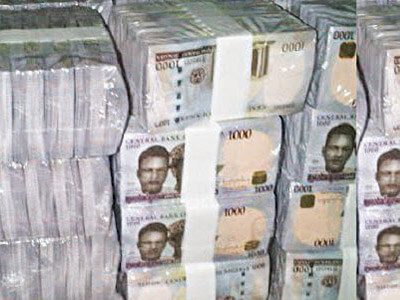The rate of inflation in Nigeria is alarming. It’s beyond the data from the National Bureau of Statistics (NBS). The prices of consumables in 2021 compared to 2019 price is an indication that the country is overwhelmed.
Officially, the inflation rate was 17.75% as of June 2021, a slight difference from May inflation, when it stood at 17.93%. To NBC, it’s a slight improvement, but in the real sense, the prices of rice, garri, and other foodstuffs continue to go up.
High food inflation stood at 21.83 percent in June, according to NBS
For instance, an egg at the time of compiling this report (July 22, 2021) was N60 compared to 2019, when an egg was N30. That’s an increment of 100% within a period of two years. It’s alarming!
So, what are the workable ways to reduce the effect of inflation on Nigerians? President Muhammadu Buhari says his masterplan can lift 100 million Nigerians out of poverty in the next 10 years, details of his plan is at: https://infomediang.com/buhari-lift-100million-nigerians-out-of-poverty
But to the Lagos Chamber of Commerce and Industry, LCCI, the APC-led government can reduce the effect of inflation of prices of goods and services on Nigerians by implementing actionable policies in some sectors of the country.
According to the Director-General of LCCI, Dr Muda Yusuf, three principal drivers of inflation included:
- Cost-push factor
- Supply chain disruptions
- Monetization of fiscal deficit or inflation tax
Yusuf stated that the high energy cost, which included the spike in the cost of diesel, electricity and aviation fuel, high transportation and cost of logistics, and high import tariff as major cost push factor influencers.
Ways To Reduce Effect of Inflation in Nigeria
- Reduce Import Tariff
- Reduce the cost of logistics
- Addressing security problems
- Reducing the cost of energy
- Stemming exchange rate depreciation
- Improving productivity across all sectors.
- Reduction CBN’s financing of fiscal deficit
Reducing the cost of energy
There has been a persistent call on Nigerian authorities to explore renewable energy to mitigate the energy challenge being experienced presently.
“The other advantage of going solar would be its impact on the cost of generating and distributing electricity. Solar costs are coming down,” a Research fellow, University College Cork, Ireland, Samuel Ayokunle Olowosejeje once advised Nigeria to go solar.
Those who businesses depend on power supply pay more in fueling generating set, effect of which trickle down to the final consumer.
Solar-based energy can contribute to reducing the cost of generating and distributing electricity in the country.
Reduce the cost of logistics
Importers pay huge sums in moving their products from Apapa port and TinCan to different locations in Lagos and other parts of the country.
This is as a result of the lack of commitment on the part of the government to remove the hectic nature of clearing imported goods at the ports. A lot of government officials eat fat from the rot.
For instance, 40ft container from Apapa Port to a location like Ikeja (within Lagos) cost between N350,000 to N400, 000 while 40ft container from Tincan axis port to the same location was between N270,000 to N300,000 as of June 2021
To move the same size of the container from Apapa to a Northern city like Kano is between N850, 000 to N1,000,000
This is compounded by the several thousands of naira drivers of trucks pay at the port before getting to their destination. Some of them spend days or weeks at the port before their goods are cleared.
Solution: The government should put mechanisms in place to track and leverage scheduling software so that planning operations such as pick-up and delivery to shipping routes move as planned.
Reduce Import Tariff
It seems the Nigerian government is focusing more on the revenues generated from import duties than the effect on Nigerians.
The burden has been put on consumers and businesses because higher import prices mean higher prices for goods, thereby causing inflation.
The government needs to urgently review import tariffs on selected inputs for production
Reduction in CBN’s financing of fiscal deficit
The Godwin Emefiele-led CBN has a huge role to play in its primary assignment of stabilizing the economy and controlling inflation,
The apex bank needs to reduce its financing of fiscal deficit to levels provided for in the CBN Act because the fiscal deficit financing by the Apex Bank acted as a major inflation driver.
“The infusion of this financing typically increases the money supply and aggravates inflation. It is high-powered money and also characterised as inflation tax,” Yusuf said.
Takeaways:
High inflation is hurting investment, it is injurious to the welfare of the people and detrimental to the economy.
Government should embrace renewable energy, reduce import tariff


